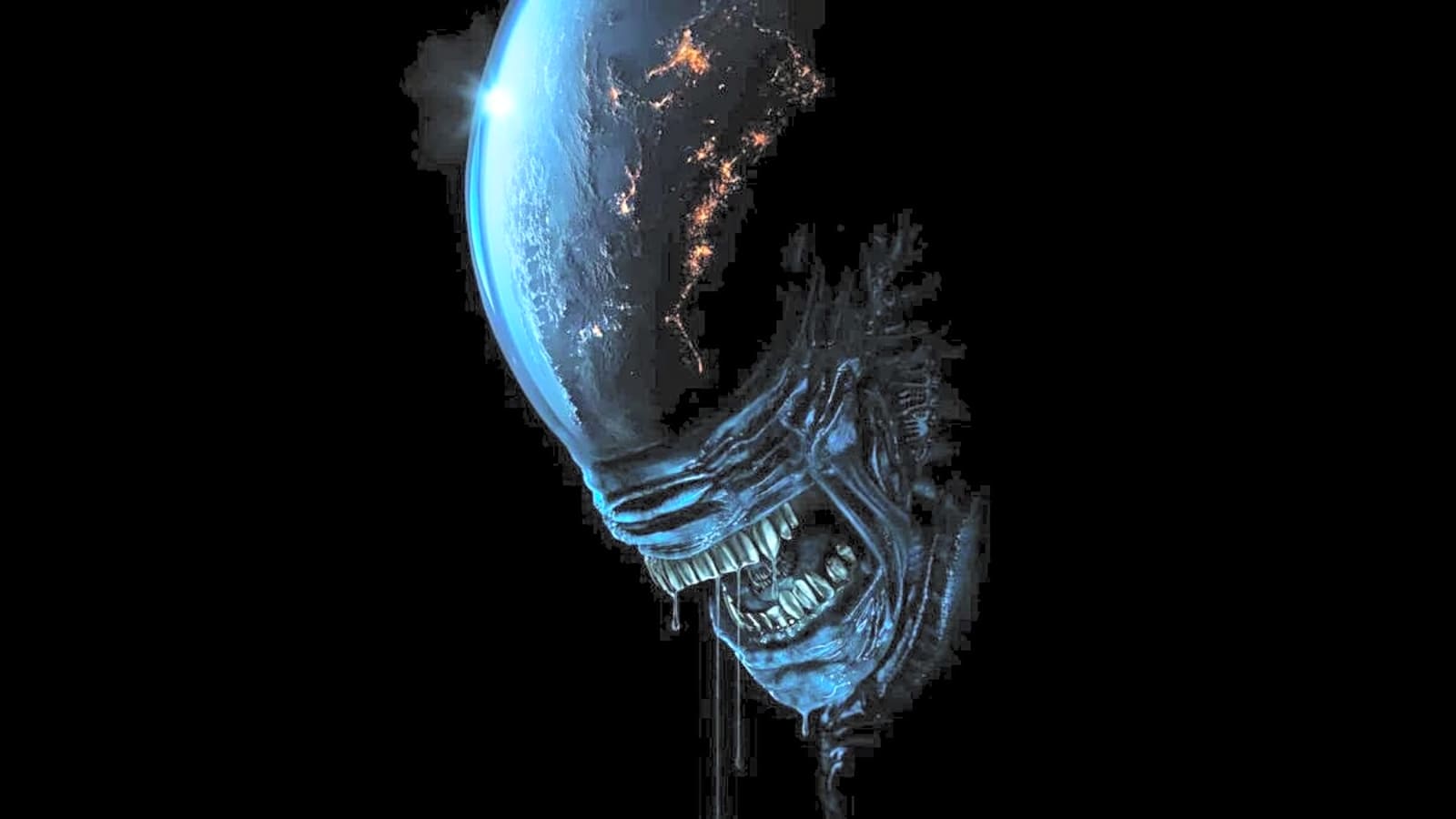
When Alien Earth premiered, I was genuinely excited. Finally, we’d get to see what happens when those nightmare creatures actually make it to our blue marble of a planet. The possibilities seemed endless: corporate espionage, government cover-ups, maybe even some actual character development that doesn’t end in violent alien birth.
Instead, we got a shot-for-shot recreation of the Nostromo’s breakfast scene. I’m talking about the exact same overlapping dialogue, the same sterile white rooms, even the same “corporate space truckers complaining about the company” vibe. It’s like Hawley looked at Ridley Scott’s 1979 masterpiece and t hought, “You know what this needs? A carbon copy with different actors.”
The problem isn’t that nostalgia exists; hell, we all love a good callback. The problem is when reverence becomes a creative crutch, and Alien Earth is limping harder than a colonist trying to outrun a Xenomorph queen.
The Nostalgia Trap That Even Smart Showrunners Fall Into
Look, I get it. You’re Noah Hawley, the guy who made us actually care about “Fargo” on television when nobody asked for it. You’ve got the keys to one of science fiction’s most beloved franchises, and suddenly you’re tasked with bringing the Xenomorph to the small screen for the first time. The pressure must feel like having a facehugger wrapped around your creative throat.
But here’s the thing that’s eating at me: Alien Earth just committed one of the most baffling creative sins in franchise television. And honestly, it stings more than watching your favorite character get chest-bursted in the final act.
Look, I get it. You’re Noah Hawley, the guy who made us actually care about “Fargo” on television when nobody asked for it. You’ve got the keys to one of science fiction’s most beloved franchises, and suddenly you’re tasked with bringing the Xenomorph to the small screen for the first time. The pressure must feel like having a facehugger wrapped around your creative throat.
But here’s the thing that’s eating at me like acid blood through a spaceship hull: Alien Earth just committed one of the most baffling creative sins in franchise television. And honestly, it stings more than watching your favorite character get chest-bursted in the final act.
Why This Decision Makes Zero Narrative Sense
Here’s where my screenwriter brain starts twitching like a motion tracker picking up movement in the vents. The Nostromo was a mining vessel – a glorified space garbage truck filled with blue-collar workers who just wanted to collect their paychecks and go home. They had zero business encountering alien life forms, which is exactly what made their situation so terrifying.
But the USCSS Maginot? This is supposedly a research vessel designed for deep-space exploration. These people signed up to find weird stuff in the cosmic wilderness. So why does their ship look identical to a freight hauler? Why do they act like disgruntled space janitors instead of, you know, scientists and explorers?
It’s like making a medical drama where the surgeons complain about having to perform surgery. The character motivations don’t align with the world-building, and that’s screenwriting 101 stuff that should have been caught in the first draft.
What Alien Earth Should Have Learned From Prequels
I know, mentioning “Prometheus” and “Alien: Covenant” in this makes it messy. But hear me out, because Ridley Scott actually understood something crucial about expanding a franchise: different stories require different aesthetics.
When Scott decided to explore the origins of the Xenomorph species, he didn’t just copy-paste the Nostromo’s grimy industrial design. He created sleek, sterile environments that reflected the characters’ hubris and technological overconfidence. The clean white surfaces of the Prometheus weren’t just pretty: they were thematically relevant to a story about humans thinking they could control forces beyond their understanding.
Alien Earth had the same opportunity. A research vessel should feel different from a mining ship. Scientists should behave differently from space truckers. The show could have created its own visual language while still feeling authentically part of the Alien universe.
Instead, we got what feels like expensive fan fiction.
The Corporate Commentary That Could Have Been
There’s actually a brilliant satirical angle buried in this mess that nobody seems to be exploring. Imagine if Weyland-Yutani really did use the same ship designs for every purpose. Mining, research, and passenger transport, since it’s cheaper than developing specialized vessels.
Picture the dark comedy gold mine: researchers trying to conduct delicate experiments in spaces designed for hauling ore, scientists complaining that their “laboratory” smells like space diesel, corporate memos explaining why they can’t afford proper equipment because shareholders need their dividends.
That would have been savage commentary on late-stage capitalism that actually fits the franchise’s themes. Instead, we got lazy visual repetition that serves no narrative purpose beyond making fans go “Oh, I remember that!”
Missing the Point of What Made Alien Terrifying
The original Alien worked because it trapped ordinary people in an extraordinary situation. These weren’t heroes or chosen ones; they were working-class folks just trying to survive their shift. The horror came from the complete mismatch between their mundane expectations and the cosmic nightmare they encountered.
Alien Earth undermines this dynamic by making everyone act like reluctant space truckers, even when they’re supposedly trained for exactly the kind of mission they’re on. It’s like making a zombie movie where all the characters are professional zombie hunters who are somehow surprised by zombies.
The emotional stakes collapse because the character reactions don’t feel authentic to their supposed backgrounds and training.
Where Do We Go From Here?
Look, Alien Earth isn’t irredeemable. Television has this beautiful ability to course-correct as it goes, and there’s still time for the show to find its own identity instead of cosplaying as its big-screen predecessors.
But the early episodes represent a fundamental misunderstanding of what makes franchise television work. The best spin-offs and adaptations don’t just recreate what came before; they use the established world as a launching pad for new stories that couldn’t be told anywhere else.
The Xenomorph is finally on Earth. That’s a premise loaded with potential for corporate conspiracy, government cover-ups, ecological disaster, and social commentary. We could explore how different Earth cultures might respond to alien contact, or how various power structures might try to weaponize or monetize the threat.
Alien Earth Episode 3 Comes Out Later This Week
Instead, we’re getting a greatest hits compilation when what we need is a bold new album.
Alien Earth had the chance to be something special, a thoughtful exploration of how humanity might realistically handle first contact with a hostile alien species. Instead, it’s settling for being a very expensive piece of nostalgia bait.
And honestly? We deserve better. The franchise deserves better. Even the Xenomorphs deserve better than being reduced to glorified props in a corporate-approved trip down memory lane.
The acid test for any franchise expansion is simple: does it justify its own existence, or is it just cashing in on brand recognition? Alien Romulus, while many had their critiques, did add a few unique twists and features to the Alien franchise storyline.
Here’s hoping the show finds its spine before the season ends. Because in space, no one can hear you phone it in, but on Earth, we’re all watching.
More must-reads:
- 20 animated films that pack an emotional wallop
- '9-1-1' star Angela Bassett reveals the alternate death they filmed instead of Peter Krause's character
Breaking News
Trending in Entertainment
Customize Your Newsletter
 +
+
Get the latest news and rumors, customized to your favorite sports and teams. Emailed daily. Always free!








